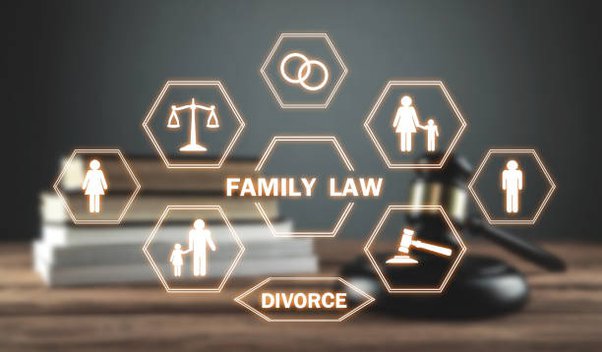Can You Sue Family Court?
Family court is part of the judicial system that handles legal matters involving family relationships, such as divorce, child custody, and child support. Many people going through emotional family court cases feel wronged by the outcome and wonder if they can sue the family court itself. So can you actually sue family court?
Understanding Family Court Authority
Family courts operate under the authority of state and local governments. Judges are granted a great deal of discretion in making decisions that they believe serve the best interests of any children involved and are fair to the parties.
This means family court judges have judicial immunity. They cannot be sued for monetary damages for the outcome of cases over which they preside. Judicial immunity protects judges from constant lawsuits by unhappy litigants, allowing them to make legal decisions without fear of personal repercussions.
However, judicial immunity does not protect judges from all lawsuits. It shields them only from lawsuits claiming negligence or misconduct in how they handled proceedings. You can still sue a judge for deliberate violations of the law or your rights.
When You May Be Able to Sue
There are some circumstances in which you may be able to sue over a family court decision:
Violation of Constitutional Rights
If you can prove a judge violated your constitutional rights, you may be able to sue. For example, if a judge made a decision that infringed upon your First Amendment free speech rights or Fifth Amendment due process rights, you could potentially sue. You would need to show the judge deliberately violated your rights.
Exceeding Authority
Judges are required to remain neutral arbiters and follow the letter of the law. If it can be proven a judge acted outside their authority, judicial immunity may not apply. For example, a judge who used a family court case to further a personal interest could potentially be sued for exceeding their power.
Conflict of Interest
Judges must avoid conflicts of interest in carrying out their duties. If you can prove a judge had a conflict of interest in your case that influenced their decision, you may be able to sue if you have suffered financial, professional, or personal losses as a result.
Procedural Errors
Gross procedural errors by a judge may also make them susceptible to lawsuits in some cases. Examples include:
- Failing to give you reasonable notice of hearing dates or court proceedings
- Refusing to let you obtain proper legal representation
- Not allowing you to present evidence or call witnesses
- Ruling on your case without proper authority or jurisdiction
These types of procedural mistakes violate due process rights. But you would need to prove that the judge deliberately failed to follow correct legal procedures – not just that mistakes were made.
Discrimination
If a judge demonstrates clear discrimination against you in their handling of your case based on your race, gender, religion, disability, or other protected class, you may be able to sue. You would need solid evidence like comments, remarks, or actions demonstrating bias.
When You Cannot Sue
In most situations, you cannot sue a family court judge just because you do not agree with or are unhappy with their decision. For example:
- You cannot sue just because the judge ruled against you and issued an order you do not like.
- You cannot sue because you got a different judge than you wanted or expected.
- You cannot sue over small procedural errors you believe affected the outcome.
- You cannot sue because you believe the judge came to the wrong conclusion based on the evidence.
- You cannot sue because you think the judge should have weighed the evidence differently.
Judges are allowed to make judgment calls and interpret the law when issuing rulings. The only recourse is to appeal through the proper legal channels, not sue the judge.
Steps for Suing a Family Court Judge
If you have valid grounds for a lawsuit, such as a judge exceeding their authority or violating your constitutional rights, you would take the following steps:
Consult an Attorney
Suing a judge is extremely difficult, so consulting with an attorney experienced in this area is strongly recommended before taking legal action. They can examine the details of your case and advise you on the viability of a lawsuit.
Send an Intent to Sue Letter
Some states require you to formally notify a judge of your intent to sue them before you can file a lawsuit. Have your attorney draft a letter stating your intent to take legal action and the grounds for the lawsuit.
File a Complaint
You or your attorney will need to prepare an official civil complaint detailing your allegations against the judge and naming the judge as the defendant. The complaint gets filed with the court and served on the judge.
Judge Responds
Once served, the judge will have a chance to respond in writing to your complaint and can file a motion to dismiss. The judge will likely invoke judicial immunity as a defense.
Motion Hearing
The court will hold a hearing to consider the judge’s motion to dismiss and any other preliminary motions in the case. You will need to present arguments and evidence for why your case should proceed.
Discovery
If your case makes it past preliminary motions, it will enter the discovery phase. This involves gathering evidence through depositions, interrogatories, requests for production of documents, and requests for admissions.
Trial
Finally, your lawsuit would proceed to a civil trial if not dismissed or settled beforehand. You would present your evidence of misconduct or rights violations before a jury or judge. The judge-defendant could also testify.
Seeking Alternative Forms of Relief
Even if you cannot legally sue a family court judge directly, you may have other options to seek relief besides filing an appeal:
- File a complaint with the state judicial conduct commission – Every state has a commission that investigates complaints against judges and can issue discipline.
- Request a new judge – If there are indications of bias, conflict of interest, or misconduct, you can request your case be reassigned.
- File a complaint with the federal court – If you believe a state judge violated your federal constitutional rights, you can file a complaint with the federal district court.
- Consult elected officials – Contact your local and state representatives to see if they are willing to investigate or apply political pressure.
- Initiate impeachment – In some states, you can initiate impeachment proceedings by petitioning the legislature.
- Spread public awareness – Utilize the press and social media to bring public scrutiny on a judge’s misconduct.
- Organize protests – Peaceful protests, rallies and public speaking can apply community pressure on the court.
- Start a movement – Join or launch an advocacy movement dedicated to family court reform.
While an uphill battle legally, shedding light on judicial misconduct through activism and advocacy can lead to positive reforms.
Should You Sue Family Court? – Key Considerations
Deciding whether suing over a family court decision is worth pursuing involves weighing several factors:
- Do you have legitimate legal grounds like rights violations or misconduct?
- Can you prove damages caused directly by the judge’s actions?
- Are you prepared to invest substantial time and legal expenses?
- Is your primary goal monetary compensation? Suing a judge rarely leads to big payouts.
- Are you willing to go through the emotional turmoil of a lawsuit?
- Could a lawsuit negatively impact your future family court proceedings?
- Could you accomplish more through advocacy and public awareness campaigns?
- Is a lawsuit in the best interests of any children involved?
Suing family court should not be taken lightly. The system is designed to protect judges. Focus first on using proper legal channels like appeals or complaints unless you have egregious circumstances.
Alternatives to Suing Family Court
Instead of suing, there are several more constructive ways to handle an unfair decision:
- Appeal the decision – File appeals through the proper court channels. Many rulings can be overturned or reconsidered on appeal if incorrect.
- Request a new judge – Ask for your case to be reassigned if there are questions about bias or conflicts of interest impacting decisions.
- See a custody evaluator – An outside custody evaluator can conduct an investigation and give recommendations to the court. Their objectivity may help sway the case.
- Go to counseling – Counseling helps you process emotions healthily, improves coparenting, and shows maturity to the court.
- Consider mediation – A mediator can help resolve issues with your ex and lead to mutually satisfactory agreements.
- Manage disputes outside court – Where possible, contain disputes through cooperation and avoid running back to court over disagreements.
- Document issues – Keep thorough records demonstrating how decisions are harming the children. This can support appeals and requests for change.
- Remain calm – Judges respond better to level-headed litigants who take the high road. Venting anger and frustration in court will not help your case.
With patience and a balanced approach, many family court decisions can be improved over time without the need for lawsuits.
Conclusion
Family court decisions elicit strong emotions in people, but suing a family court judge is extremely challenging except in cases of deliberate legal violations. The system insulates judges against lawsuits related to the merits of their rulings. While understandable to feel wronged, in most cases you are better off utilizing proper legal appeal channels, leveraging public advocacy, and exploring alternatives within the court process. With a reasoned approach, many unfavorable rulings can eventually be amended or overturned. The wellbeing of any affected children should remain the top priority when considering how to move forward.
FAQ
Here are answers to some frequently asked questions about suing family court:
Can I sue family court for monetary damages?
No, you cannot sue family court itself or a family court judge for monetary damages based solely on dissatisfaction with their rulings or handling of your case. Judges have broad legal immunity for their official court decisions.
What should I do if I believe a judge violated my rights?
Consult with an attorney immediately if you believe a judge knowingly violated your constitutional rights. An experienced lawyer can examine your case and advise you on steps such as filing a complaint or initiating a lawsuit.
Can I sue CPS or DCFS over family court decisions involving my child?
No, you cannot sue Child Protective Services or Department of Children & Family Services for your child being removed or placed based on a judge’s orders. Workers act at the judge’s direction, so they share immunity.
Is it possible to sue for emotional distress over a family court judgment?
It is highly unlikely. Except in cases of intentional discrimination or civil rights violations, judges are immune from lawsuits seeking damages for emotional distress or psychological harm.
What are examples of family court rulings you can sue over?
Some examples may include a judge deliberately violating due process, ruling without jurisdiction, demonstrating clear bias or conflict of interest, or improperly using a case to further personal interests.




